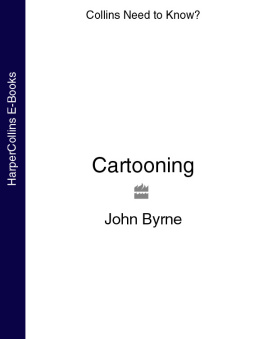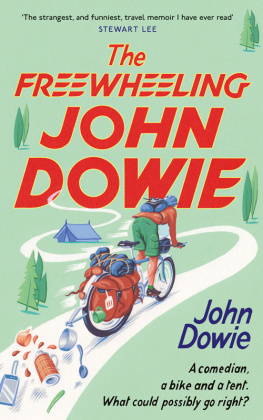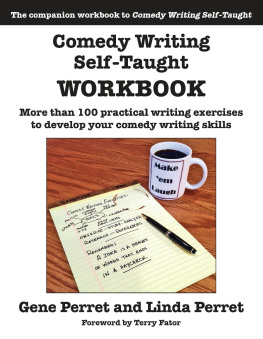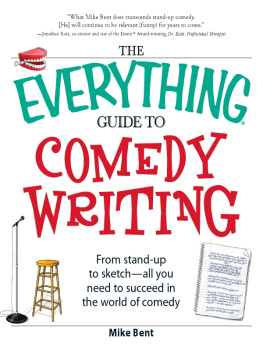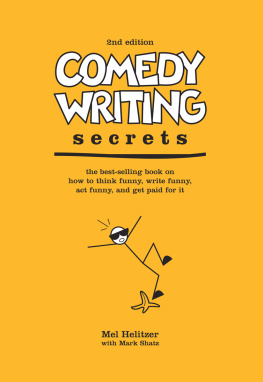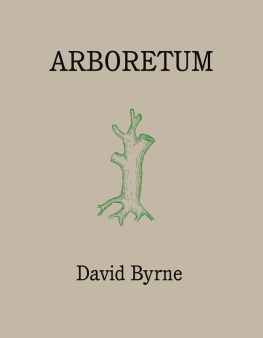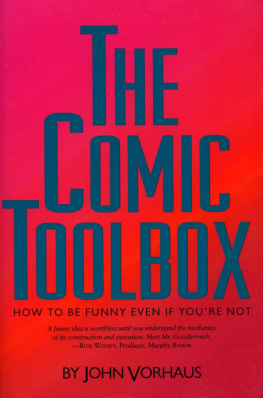John Byrne - Writing Comedy
Here you can read online John Byrne - Writing Comedy full text of the book (entire story) in english for free. Download pdf and epub, get meaning, cover and reviews about this ebook. year: 2012, publisher: A&C Black, genre: Home and family. Description of the work, (preface) as well as reviews are available. Best literature library LitArk.com created for fans of good reading and offers a wide selection of genres:
Romance novel
Science fiction
Adventure
Detective
Science
History
Home and family
Prose
Art
Politics
Computer
Non-fiction
Religion
Business
Children
Humor
Choose a favorite category and find really read worthwhile books. Enjoy immersion in the world of imagination, feel the emotions of the characters or learn something new for yourself, make an fascinating discovery.

- Book:Writing Comedy
- Author:
- Publisher:A&C Black
- Genre:
- Year:2012
- Rating:3 / 5
- Favourites:Add to favourites
- Your mark:
- 60
- 1
- 2
- 3
- 4
- 5
Writing Comedy: summary, description and annotation
We offer to read an annotation, description, summary or preface (depends on what the author of the book "Writing Comedy" wrote himself). If you haven't found the necessary information about the book — write in the comments, we will try to find it.
Writing Comedy — read online for free the complete book (whole text) full work
Below is the text of the book, divided by pages. System saving the place of the last page read, allows you to conveniently read the book "Writing Comedy" online for free, without having to search again every time where you left off. Put a bookmark, and you can go to the page where you finished reading at any time.
Font size:
Interval:
Bookmark:

Go on then, make us laugh.
The challenge for aspiring comedy writers is as simple or as difficult as that.
While I would never suggest that comedy writing is easy, neither is it the hardest job in the world as some people in the business would have you believe. (Id imagine people who work on the front line in hospitals, inner city schools or war zones would also beg to differ). In my twenty or more years in the business I have certainly come across some of the classic tortured comedy geniuses but I would have to say that not all the tortured geniuses I know are successful and not all the successful comedy writers I know are particularly tortured. What the successful ones have managed to do, and what I hope this book will help you to do, too, is combine a little comedy talent with a lot of determination and hard work and put together a career which plays to their strengths while relying on a few tricks of the trade to get over some of the challenges.
Youll note that I promised this book would help you as opposed to do it for you, so, as you read through the pages that follow, youll find each chapter ends with some practical exercises designed to make our journey together a truly collaborative and useful one for you.
Speaking of collaboration, Id like to take this opportunity to acknowledge the support and expert advice of my editor, Anna Brewer, and my agent, Clare Hulton. Im also more than grateful to my beautiful partner Lola, my son Pearse, and to all of my family for putting up with me while I have been juggling this book deadline with various other writing and work commitments. As your own friends and family may be about to find out, living with a writer isnt always a laughing matter.
This new edition of the book incorporates updates, feedback and improvements from the many people from both the writing and performing sides of the business who were kind enough to make suggestions about what worked best for them in previous editions and what needed to be added to reflect recent developments in the comedy and media worlds. I have also tried to use examples of comics and comedy shows from both sides of the Atlantic which, if you are not already familiar with them, will be relatively easy to research via the internet. Id be absolutely delighted if, by the time we do the next edition, your own successful career is one of the examples we refer to.
For now, if you have something to write with, and your sense of humour to hand, please turn the page and lets get on with making sure that the only pratfalls in your comedy writing career are intentional ones.
John Byrne
December 2011
Can I Learn to Write Comedy
from a Book?
Somebody once said that comedy writers and comedians are people who see the funny side of everything except comedy itself. Certainly wherever comics and writers gather, the question that opens this chapter is often hotly and passionately debated. This question is asked not just in relation to books like this one, but also in relation to the many comedy workshops and courses that have sprung up around the world since the comedy industry became one of the most high-profile and lucrative sectors of the media and entertainment world.
Of course, as with any creative industry, not everyone involved in comedy reaches the dizzy heights of international stardom or multimillion dollar earnings. In fact many of the comedians comedians or comedy writing legends whom the professionals revere and quote endlessly are not necessarily names the general public or casual fan will recognise at all.
With that in mind, lets begin our discussion with a definition of good comedy writing that is based on a more reliable indicator than recognition or commercial success.
Good comedy writing is whatever makes us laugh.
Yes, good comedy writing can also make us think, make us look at life from a different perspective and occasionally bring a genuine tear to our eyes. Theres also a body of medical opinion to suggest that good humour can go further still improving our physical health, reducing our stress levels, and perhaps even working wonders for our love lives.
As we have already noted, from Richard Pryor to Ricky Gervais, Eddie Murphy to Eddie Izzard and The Flintstones to The Simpsons, theres certainly no doubt that a talent for writing, performing or even drawing funny material can lead to fame, fortune and a place in the history books.
But all of that comes later, if it comes at all.
For now, whether you are a complete beginner at comedy writing or have been in the business for years and years, the main task before you remains the same as always: to stare at a blank sheet of paper or an empty electronic screen and try to put something on it that makes the audience laugh.
So how do you learn to do this? Well, if you wanted to be a motor mechanic, the best starting point would probably be to study the inner workings of an engine and try to discover what makes it tick. If your aim is to be a doctor youll probably spend a lot of time studying the human body to see how it works (and even more importantly what goes wrong when it doesnt). That being the case, a good place to start learning to create laughter would be to take a close look at our sense of humour and try to work out what the actual mechanics involved in producing that wonderful and potentially lucrative sound might be. This isnt quite as straightforward as stripping down an engine or dissecting a body. While most engines operate on broadly similar scientific principles and most human beings are put together in roughly the same way, senses of humour tend to behave a bit more subjectively.
What makes me laugh may not make you laugh, and vice versa. And even if we do find something that makes us both laugh, as many comedy writing teams will testify, this still isnt a cast-iron guarantee that it will have the same effect on an audience.
To make things even more complicated, why exactly we are equipped with a sense of humour in the first place, and what specific purpose laughter fulfils in the human make-up are questions for which neither science nor medicine have so far come up with any definitive answers.
There are theories of course some people believe that as we humans are the only living creatures who have advance knowledge that we are going to die, we have been given a sense of humour as a sort of consolation prize to stop us going insane. Another theory presents laughter as part of our bodys response to danger, a release of tension which prevents us being frozen with fear and unable to escape from marauding dinosaurs or whatever their modern equivalent might be.
Comedians themselves have of course had lots to say on the subject, from the philosophical (You can turn painful situations around through laughter. If you can find humour in anything, even poverty, you can survive it Bill Cosby) to the whimsical (Laughter is the shortest difference between two people Victor Borge). My own favourite definition of a laugh is less earnest but given that it comes from Ken Dodd, one of Britains greatest stand-up comedians for over fifty years, it probably carries a lot more comic authority: A laugh is something that comes out of a hole in your face anywhere else and youre in dead trouble.
Laughter is certainly an involuntary reaction if we hear or see something which strikes us as funny we just cant help laughing. It doesnt matter whether we are in an important meeting, in the middle of a vital exam, at a funeral or anywhere else where bursting into laughter is the last thing we should be doing in fact the more we know that we
Next pageFont size:
Interval:
Bookmark:
Similar books «Writing Comedy»
Look at similar books to Writing Comedy. We have selected literature similar in name and meaning in the hope of providing readers with more options to find new, interesting, not yet read works.
Discussion, reviews of the book Writing Comedy and just readers' own opinions. Leave your comments, write what you think about the work, its meaning or the main characters. Specify what exactly you liked and what you didn't like, and why you think so.

